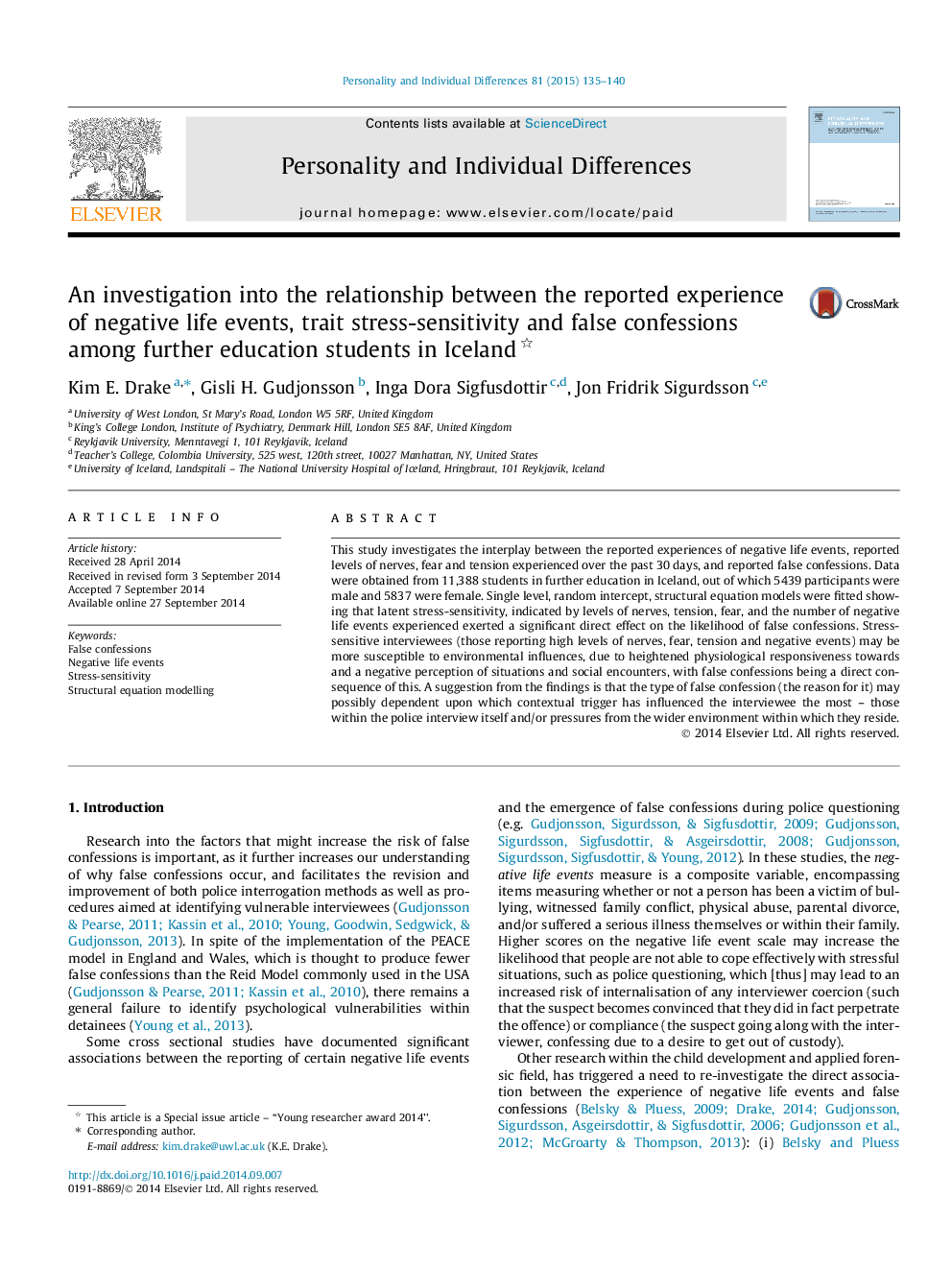| Article ID | Journal | Published Year | Pages | File Type |
|---|---|---|---|---|
| 890058 | Personality and Individual Differences | 2015 | 6 Pages |
•Stress sensitivity was best indicated by NLE, nerves, tension and fear scores.•Stress sensitivity exerted a significant direct effect on false confessions.•Higher stress sensitivity scores increased the likelihood of false confessions.•This is due to increased susceptibility to environmental influences.•The type of false confession may depend on the type of contextual trigger.
This study investigates the interplay between the reported experiences of negative life events, reported levels of nerves, fear and tension experienced over the past 30 days, and reported false confessions. Data were obtained from 11,388 students in further education in Iceland, out of which 5439 participants were male and 5837 were female. Single level, random intercept, structural equation models were fitted showing that latent stress-sensitivity, indicated by levels of nerves, tension, fear, and the number of negative life events experienced exerted a significant direct effect on the likelihood of false confessions. Stress-sensitive interviewees (those reporting high levels of nerves, fear, tension and negative events) may be more susceptible to environmental influences, due to heightened physiological responsiveness towards and a negative perception of situations and social encounters, with false confessions being a direct consequence of this. A suggestion from the findings is that the type of false confession (the reason for it) may possibly dependent upon which contextual trigger has influenced the interviewee the most – those within the police interview itself and/or pressures from the wider environment within which they reside.
